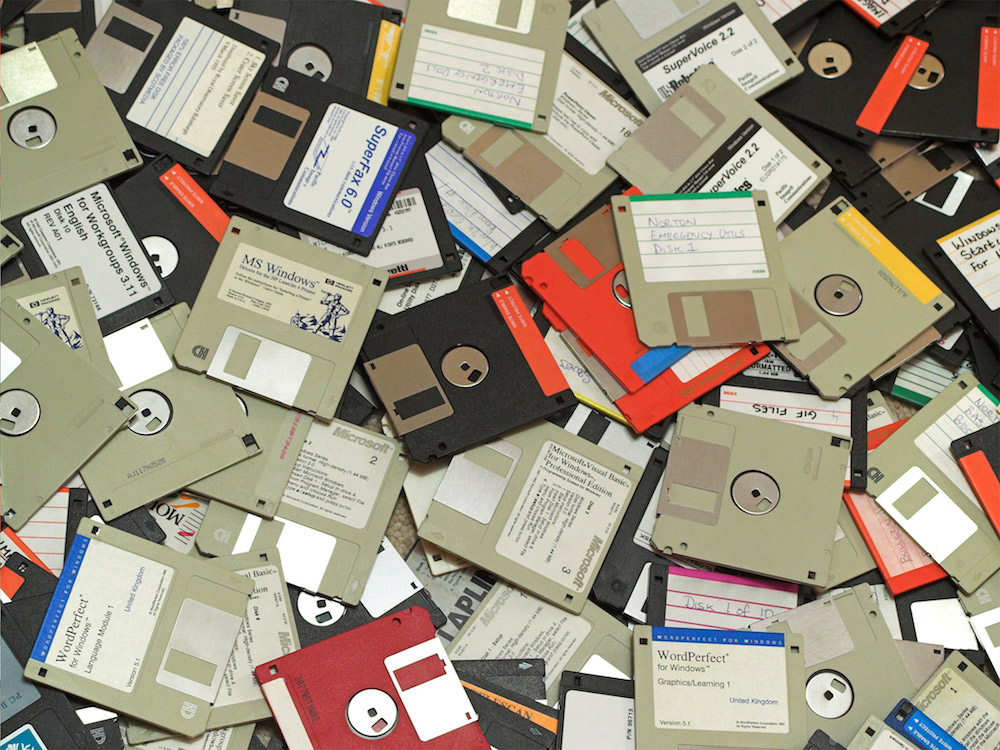Floppy Disks Are Back From the Dead
Some old technologies survive disruptions. Take books, for example: Despite the rise of e-readers, plenty of people still buy soft and hardcovers.
Other technologies are reintroduced or reinvented by circumstance. For example, in the wake of a surveillance scandal, German politicians debated scrapping email and bringing back typewriters as a safeguard against potential leaks, cyberattacks and email hacks.
Remember floppy disks? They’re back too, in the form of quantum floppy disks.

Quantum… floppy… disks…?
Quantum computing is a technological disruption that has been on the horizon for decades. It replaces the 1s and 0s we all know with quantum bits (or qubits) in superposed states.
It’s complicated stuff—so complicated, in fact, that quantum computing research has been the exclusive domain of tech giants with deep pockets, such as Google and IBM. This limitation has stunted the progress of this technology.
However, a team of researchers from Vermont is set to change all of that. They claim to have used cheaply available floppy disks to harness the power of quantum computing.
What Is a Quantum Floppy Disk?
The quantum floppy disk is a first-of-its kind technology that’s perfectly suited to making quantum computing widely available.
Back in its heyday, the quintessential floppy disk could store only 1.44 megabytes. The revolutionary new quantum floppy disk can store up to 1.37 petabytes—that’s nearly a trillion times the data capacity!
kilo- | 103 |
mega- | 106 |
giga- | 109 |
tera- | 1012 |
peta- | 1015 |
This means a single quantum floppy disk can store approximately up to 1/10,000 of the total data in Google’s servers.
In other words, Google could replace its 900,000 expensive servers with 10,000 relatively cheap quantum floppy disks and get the job done just as efficiently.
The Quantum Problem: Noise
In a 2013 report, physics and astronomy professor Lorenza Viola and former Dartmouth research professor Kaveh Khodjasteh talked about developing a new way to design quantum memory. They explained why the current hardware was incompatible for quantum computing:
“Quantum systems inevitably suffer from noise due to their interaction with the surrounding environment, and this noise tends to rapidly degrade or distort quantum information,” said Viola.
She goes on to point out that degradation and distortion caused by noise lead to a loss of quantum properties—and this degradation can occur while the information is being stored idly.
“Keeping quantum information alive for long periods of time, while still making it accessible to the computer, is thus a key challenge.”
The Quantum Solution: Floppy Disks
Scientists have been testing and designing quantum computing hardware that evades the noise issue. But nobody had even remotely considered floppy disks until the Vermont team announced that its quantum floppy disk could store up to 1.37 petabytes of data.
With this announcement, many data scientists quickly found a winning fit in the floppy disk.

Get used to seeing these again
“The floppy disk has the unique property of eliminating noises and providing a soundproof environment that most new-age hardware cannot,” said Okewii Gateau, principal researcher at the Vermont lab.
This is the key quality that makes the floppy disk such a significant advancement.
“[Floppy disks] are conducive to quantum computing, as they’re sturdy and highly reliable: We tested it against water, wind, fire and dust and it still works normally. They will advance quantum computing by years!”
Okewii Gateau, principal researcher at the Vermont lab
The Vermont lab’s surprising reintroduction of the floppy disk leads us to believe that quantum computing will be mainstream by 2019. For the first time in computer science, innovation isn’t being driven by a look to future—it’s being driven by those revisiting the past.
__________
Just kidding… APRIL FOOL! But you totally believed it, didn’t you? 😉 Be honest.
The good news is, here at Software Advice we do cover real-life technology trends and their implications for small businesses all the time—you can check out our articles and research here.